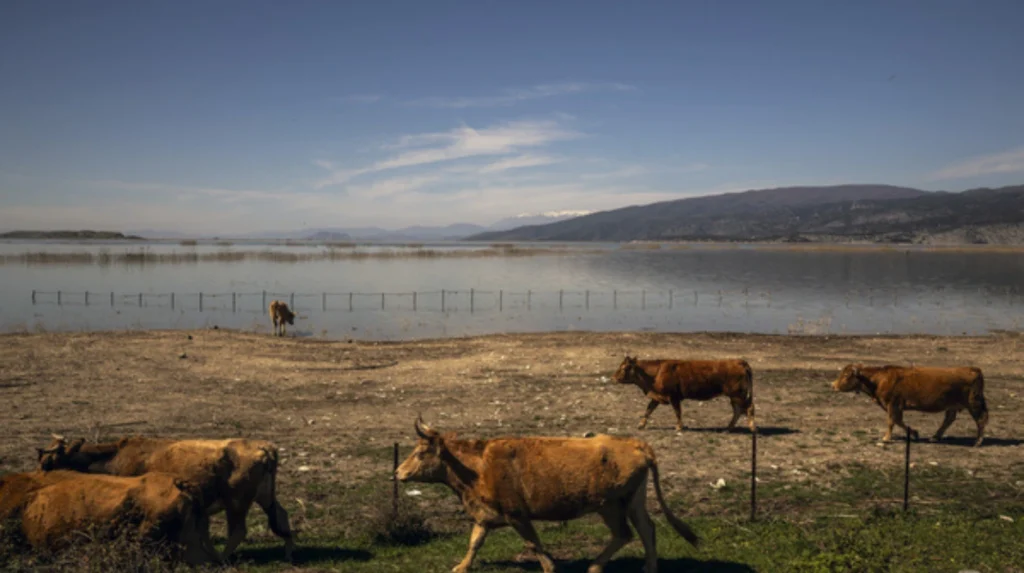The European Union has issued a stern warning to Greece, indicating that the country risks losing substantial farm payments due to a sprawling fraud scandal that has rocked its agricultural subsidy system. This development threatens not only Greece’s financial receipts from the EU but also casts doubts over the integrity of its use of Common Agricultural Policy (CAP) funds.
Background of the Fraud Scandal
The controversy centers on the use and misuse of millions of euros allocated as direct subsidies under the EU’s Common Agricultural Policy, designed to support farmers and rural development. Over recent years, Greek authorities have uncovered a sophisticated network of fraudulent claims involving fake farmers, phantom holdings, and manipulated land-use declarations. This widespread malpractice has led to artificially inflated subsidy applications, draining EU resources intended for genuine agricultural activity.
The European Commission, responsible for overseeing member states’ compliance, has expressed deep concern at Greece’s failure to adequately prevent and address these irregularities. Officials in Brussels warn that continued negligence could jeopardize Greece’s future farm payment allocations. A Commission spokesperson emphasized,
“Greece must take immediate and effective action to clean up its subsidy system or face serious financial consequences.”
Scale and Impact of the Fraud
Initial investigations suggest that the fraudulent claims may amount to tens of millions of euros lost annually. Such a loss undermines both the economic support for legitimate Greek farmers and the trust in the EU’s funding mechanisms more broadly. This scandal is not only a financial issue but undermines Greece’s reputation within the EU.
Greek Finance Minister Maria Damanaki commented,
“We recognize the severity of the issue and are committed to full cooperation with the European institutions to restore integrity and transparency to our agricultural payments.”
Farmers’ organizations in Greece have reacted with mixed feelings, as many lawful farmers fear the potential suspension of payments could severely impact their livelihoods. Petros Koulis, president of a Greek farmers’ union, warned,
“The innocent majority should not be penalized for the actions of a corrupt few.”
EU’s Legal and Financial Pressure
The EU Commission’s warnings come with the possibility of withholding payments if the Greek government fails to take corrective steps by a set deadline. Delays or inadequate responses to this crisis may trigger financial sanctions or demands for repayment of the misused funds.
Over the past decade, the EU has implemented a rigorous audit and control framework, aimed at minimizing fraud and irregularities in fund distribution. However, the Greek case highlights persistent challenges in enforcement at the national level. A senior European Commission official noted,
“We cannot allow systemic fraud to erode the credibility of our agricultural support policy. Greece must comply fully with EU rules or lose access to vital funding.”
Greek Government Response and Measures
In response, the Greek Ministry of Rural Development and Food has launched a comprehensive review of subsidy procedures and announced plans to strengthen controls, improve verification processes, and enhance digital tracking of land registrations and subsidy claims. These measures are intended to ensure greater accuracy and accountability.
The ministry also pledged collaboration with EU auditors to identify and exclude fraudulent applicants. Minister Kostas Papadopoulos stated,
“Our objective is to protect honest farmers and ensure EU support reaches those who truly deserve it.”
Despite these promises, critics within Greece argue that reforms have been slow and enforcement uneven. Some opposition members accuse the government of mismanagement and insufficient political will to tackle entrenched corruption networks involved in the subsidy scheme.
Broader EU Context and Agricultural Policy Challenges
This scandal in Greece reflects wider concerns within the EU about fraud risks related to agricultural funding. The Common Agricultural Policy, one of the EU’s largest budget items, provides substantial subsidies across member states. However, disparities in monitoring and enforcement among countries create vulnerabilities.
In recent years, the European Anti-Fraud Office (OLAF) has increased investigations into CAP fraud across the bloc, revealing multiple cases of abuse. The situation in Greece serves as a cautionary example for other member states to strengthen governance and transparency.
EU Agriculture Commissioner Wolfgang Müller commented on the wider implications:
“Member states must ensure that EU funds are spent properly and deliver real benefits to farmers and rural communities. Fraudulent practices undermine the entire Common Agricultural Policy and need to be stamped out decisively.”
Potential Consequences for Greek Agriculture and Economy
If Greece ultimately loses access to EU farm payments, the consequences could be severe. Subsidies play a crucial role in supporting Greek farmers, many of whom operate small-scale and vulnerable businesses. Without these payments, rural economies risk further deterioration.
The European Parliament’s agriculture committee is closely monitoring the situation, with some members calling for conditionality clauses to be strictly enforced to protect EU taxpayers’ money. Greek MEP Eleni Tsakalotos remarked,
“It’s vital that funds are protected, but support must remain available to farmers committed to transparency and sustainability.”
The EU’s warning to Greece over the farm payments fraud scandal highlights a critical moment for Greek agriculture and its compliance with EU regulations. The pressure from Brussels demands urgent reforms and stronger controls to prevent continued misuse of funds. How Greece responds will determine both its financial relationship with the EU and the future stability of its farming sector.







